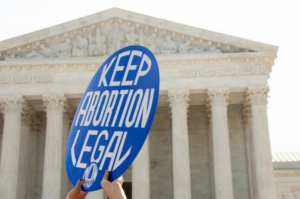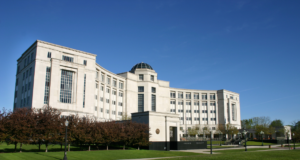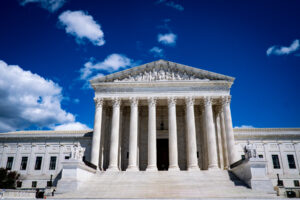Maine tries to ignore a clear Supreme Court ruling on education
3 min read
Every once in a while, a U.S. Supreme Court ruling is so clear that even laypeople can understand it. Such was the case last year when, writing for the majority in Espinoza v. Montana Department of Revenue, Chief Justice John Roberts concluded that, “A state need not subsidize private education. But once a state decides to do so, it cannot disqualify some private schools solely because they are religious.”
Clear as those words appear to be, the Court has just decided to hear another school choice case because the First Circuit Court of Appeals couldn’t seem to decipher their meaning.
In Espinoza, Kendra Espinoza sought a better education for her two daughters. In public schools, one daughter was bullied and the other struggled academically. Both would later thrive using Montana’s education tax credit program to attend a religious school.
When the Montana Supreme Court invalidated the tax credit program, Espinoza was denied access to the scholarships her children needed. The basis for the state court’s decision was Montana’s 130-year-old anti-aid amendment.
The U.S. Supreme Court struck this down as an example of unconstitutional discrimination against families who were receiving scholarships funded through tax credits to attend religiously affiliated schools.
Fast forward just over a year, and the Supreme Court has agreed to hear Carson v. Makin. Since 1873, Maine has allowed school districts that don’t have their own schools to either contract with a school to educate their students or pay for the students to attend public or private schools of their parents’ choice.
For over a century, religiously affiliated schools were included in the program. But in 1980, Maine’s attorney general opined that allowing a student to attend a “sectarian” school using public money would violate the U.S. Constitution. Two years later, the state legislature prohibited students from accessing state funds for education at religious schools.
A group of Maine parents sued to challenge the law, and after Espinoza was decided, the case made its way up to the First Circuit, where a panel of judges that included former Supreme Court Justice David Souter extended the frontier of tortured logic to uphold the law. They based their decision on the religious “use” to which a student’s aid would be put, rather than the religious “status” of the excluded schools.
In other words, they held that although Espinoza prohibits the state from excluding schools from the program because they are religious, Maine can still exclude parents from choosing schools that do religious things. If you think that would create a quagmire for public officials trying to draw distinctions between the two rulings, you’re not alone.
In addition to the distorted legal grounds for the first circuit’s ruling, it’s hard to defend on political and policy grounds. Parents’ frustration with how public schools handled the COVID-19 pandemic has led to an explosion of school choice options. Eighteen states have either adopted new school choice programs such as vouchers, education tax credits and education savings accounts, or expanded existing ones. Today, over 1.2 million students and families are served by 67 such programs in 29 states.
It’s hard to argue with the results. A clear majority of high-quality studies have found that school choice programs improve academic achievement and long-term educational attainment as measured by graduation rates, college enrollment and college completion.
As the U.S. Supreme Court takes up Carson v. Makin, the facts are clear. Maine has chosen to subsidize private education. As such, it cannot disqualify all religious schools from receiving public dollars under its school choice program.
This article was originally posted on Maine tries to ignore a clear Supreme Court ruling on education







